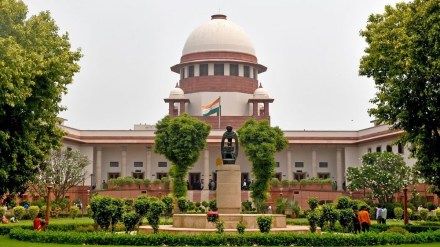In a huge setback for the 18 petitioners as well as millions of members of the LGBTQIA+ community across the country, the five-judge bench of the Supreme Court on Tuesday refused to recognise same-sex marriage in India in a 3-2 verdict.
The bench, also comprising Justices Sanjay Kishan Kaul, Ravindra Bhat, Hima Kohli and PS Narasimha, asked central government to ensure the rights of the queer community.
Also Read: Same-Sex Marriage Verdict Live Updates
The verdict comes five years after the apex court decriminalised Article 377 and legalised same-sex relationships in the country.
The constitutional bench unanimously agreed that there is no unqualified right to marry for same-sex couples. Justice DY Chandrachud and Justice SK Kaul ruled that same-sex couples can adopt children, but the other three judges disagreed.
All judges of the bench directed the government to constitute a committee to examine the rights and entitlements of persons in queer union, without legal recognition of their relationship as a “marriage”. During the hearings in May, the Centre had informed the court that it plans to form a committee headed by a cabinet secretary to address the issue.
Justice Chandrachud, in his verdict, noted that the “right to enter into a union cannot be restricted on the basis of sexual orientation”. He also noted that “failure of State to recognise the bouquet of rights flowing from a queer relationship amounts to discrimination.”
The Supreme Court said it cannot strike down the provisions of the Special Marriage Act (SMA) and the CJI has left the decision on the issue to the Parliament.
On the freedom of the queer community to enter into unions, CJI noted that it is “guaranteed under the Constitution. Denial of their rights is a denial of fundamental rights. The right to enter into unions cannot be based on sexual orientation”.
Meanwhile, Justice Ravindran Bhat, in his majority opinion said, “Civil unions can only be recognised through laws. The court can’t press the state to create a legal framework.”
Also Read: Same-sex marriage verdict: History and timeline of case ahead of Supreme Court decision today
The five-judge bench decided on the matter after hearing 18 petitions filed by various same-sex couples, LGBTQ+ activists, and transgender persons, which challenged the provisions of the Special Marriage Act of 1954, the Hindu Marriage Act of 1955, and the Foreign Marriage Act of 1969, seeking recognition of non-heterosexual marriages.
(With inputs from agencies)
